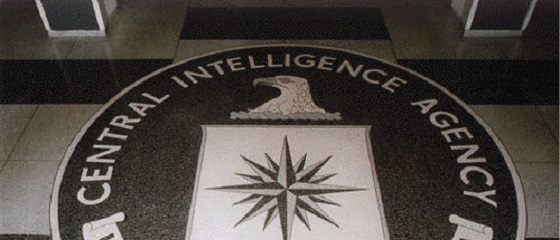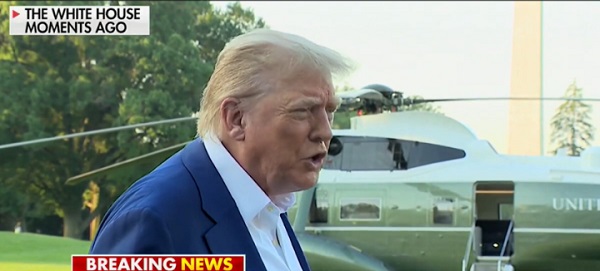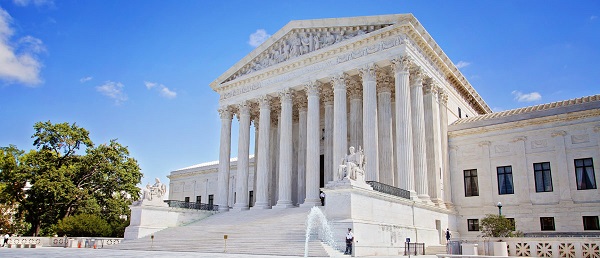Daily Caller
CIA Agents Posing As State Department Officials Outnumbered Real Ones, JFK Doc Shows


From the Daily Caller News Foundation
By Emily Kopp
Several foreign embassies housed more Central Intelligence Agency (CIA) agents posing as genuine State Department officials between 1950 to 1960, according to a document found in the more than 63,000 pages relating to former President John F. Kennedy’s assassination, released to the public by the Trump administration Tuesday evening.
CIA mission chiefs under diplomatic cover sometimes wielded more influence than the ambassadors, even advocating policies in conflict with official U.S. diplomacy, according to a June 10, 1961, memo. Kennedy was warned by historian Arthur Schlessinger Jr. in the document that CIA agents posing as State Department officials — so-called “Controlled American Sources” (CAS) — risked delegitimizing U.S. diplomacy.
“The effect is to further CIA encroachment on the traditional functions of State,” he wrote.
The CIA mission chief often exerted more power than the top diplomats, sometimes to conflicting ends, he said.
“On the day of President Kennedy’s inauguration, 47 percent of the political offices serving in United States Embassies were CAS,” the memo reads. “Sometimes the CIA mission chief had been in the country longer, has more money at his disposal, wields more influence (and is abler) than the Ambassador. Often he has direct access to the Prime Minister. Sometimes (as during a critical period [unreadable]) he pursues a different policy from that of the Ambassador. And he generally well known locally as the CIA representative.” (RELATED: Trump Administration Releases JFK Assassination Files)
Schlessinger’s 1961 memo to the president about the CIA — in which he advocated for a reorganization of the agency — had been of interest to historians and independent researchers as a Rosetta stone for understanding hostility between the former president and the nation’s foreign intelligence gathering services.
One section of the memo, however, spanning roughly 1.5 pages, remained redacted and was only revealed Tuesday night. The section described the CIA’s widespread use of diplomatic cover and its risks. Diplomatic cover was less expensive than other methods, quicker, and more attractive for agents, the memo states.
It’s unclear why the information has been concealed from the public for decades.
Director of National Intelligence Tulsi Gabbard praised the release of some 2,182 files related to the Kennedy presidency Tuesday and signaled that more documents could be released upon being released from court seal.
“President Trump is ushering in a new era of maximum transparency,” she said in a statement.
Schlessinger listed the number of CIA agents or “CAS personnel” populating embassies abroad.
“In the American embassy in Vienna, out of 20 persons listed in the October 1960 Foreign Service List as being in the Political Section, 16 are CAS personnel; of the 31 officers listed as engaging in political activities, over half are CAS,” he wrote. “Of the 13 officers listed in the political section of our embassy in Chile, 11 are CAS.”
Schlessinger expressed concern about the CIA’s dominance in the U.S. Embassy in Paris.
“In the Paris embassy today, there are 123 CIA people. CIA [in Paris] has long since begun to move into areas of political reporting typically occupied by State. The CIA men doing overt internal political reporting outnumber those in the Embassy’s political section by 18-2. CIA has even sought to monopolize contact with certain French political personalities, among them the President of the National Assembly,” he said.
The memo makes apparent reference to rumored CIA backing of the April 1961 Algiers putsch, in which generals unsuccessfully attempted a coup d’etat in French Algeria. French President Charles de Gaulle was moving Algeria toward self-determination and away from French control, which the generals opposed.
“CIA occupies the top floor of the Paris embassy, a fact well known locally; and on the night of the Generals’ [unreadable] in Algeria, passersby noted with amusement that the top floor was ablaze with lights,” he wrote. “I am informed that Ambassador Gavin was able to secure entrance that night to the CIA offices only with difficulty.”
Jefferson Morley, vice president of the Mary Ferrell Foundation and a longtime advocate for declassification, had identified this redaction section of the memo as among his top priorities ahead of the new release.
Schlessinger suggested a review of policies instituted around Jan. 19, 1961 — the day before Kennedy’s inauguration. The historian had warned Kennedy about so-called “controlled American sources” becoming a permanent feature of the foreign service, while also advocating for the “steady reduction” of CIA agents at U.S. embassies.
“Before State loses control of more and more of its presumed overseas personnel, and before CAS becomes permanently integrated into the Foreign Service, it would seem important (a) to secure every ambassador the firm control over the local CAS station nominally promised in the [unreadable] Directive of January 19, 1961, and (b) to review the current CAS direction with an eye to a steady reduction of CAS personnel,” he wrote.
The degree to which diplomatic cover for CIA agents remains a threat to the State Department’s independence and legitimacy also remains unclear. A New York Times story on March 6 about the shuttering of some foreign embassies noted that the prospect of further cuts had “generated some anxiety within the Central Intelligence Agency.”
“The vast majority of undercover American intelligence officers work out of embassies and consulates, posing as diplomats, and the closure of diplomatic posts would reduce the C.I.A.’s options for where to position its spies,” the paper reported.
conflict
‘They Don’t Know What The F*ck They’re Doing’: Trump Unloads On Iran, Israel


From the Daily Caller News Foundation
President Donald Trump expressed frustration Tuesday after Iran broke a ceasefire, prompting retaliation from Israel during a gaggle with reporters on the White House lawn.
Trump announced the ceasefire Monday, saying it was supposed to take effect at 1 a.m. Eastern Daylight Time, but Iran fired missiles at Israel Tuesday. Trump vented, saying the countries had been “fighting so long” they couldn’t make peace.
WATCH:
“You know, when I say okay, now you have 12 hours, you don’t go out in the first hour just drop everything you have on them,” Trump said. “So I’m not happy with them. I’m not happy with Iran either. But I’m really unhappy if Israel is going out this morning because the one rocket that didn’t land, that was shot, perhaps by mistake, that didn’t land, I’m not happy about that.”
“We basically have two countries that have been fighting so long and so hard, that they don’t know what the fuck they are doing,” Trump added.
The United States struck facilities in Fordow, Natanz and Isfahan related to Iran’s effort to develop nuclear weapons early Sunday morning local time, using as many as 14 GBU-57 Massive Ordnance Penetrators in the operation, which involved a 37-hour flight by seven B-2A Spirit bombers.
The American strikes came ten days after Israel launched a military operation targeting the Iranian nuclear program. Iran has responded with repeated missile attacks on Israeli cities and a refusal to resume negotiations over its efforts to pursue nuclear weapons.
Automotive
Supreme Court Delivers Blow To California EV Mandates


From the Daily Caller News Foundation
“The Supreme Court put to rest any question about whether fuel manufacturers have a right to challenge unlawful electric vehicle mandates”
The Supreme Court sided Friday with oil companies seeking to challenge California’s electric vehicle regulations.
In a 7-2 ruling, the court allowed energy producers to continue their lawsuit challenging the Environmental Protection Agency’s decision to approve California regulations that require manufacturing more electric vehicles.
“The government generally may not target a business or industry through stringent and allegedly unlawful regulation, and then evade the resulting lawsuits by claiming that the targets of its regulation should be locked out of court as unaffected bystanders,” Justice Brett Kavanaugh wrote in the majority opinion. “In light of this Court’s precedents and the evidence before the Court of Appeals, the fuel producers established Article III standing to challenge EPA’s approval of the California regulations.”
Kavanaugh noted that “EPA has repeatedly altered its legal position on whether the Clean Air Act authorizes California regulations targeting greenhouse-gas emissions from new motor vehicles” between Presidential administrations.
“This case involves California’s 2012 request for EPA approval of new California regulations,” he wrote. “As relevant here, those regulations generally require automakers (i) to limit average greenhouse-gas emissions across their fleets of new motor vehicles sold in the State and (ii) to manufacture a certain percentage of electric vehicles as part of their vehicle fleets.”
The D.C. Circuit Court of Appeals previously rejected the challenge, finding the producers lacked standing to sue.
“The Supreme Court put to rest any question about whether fuel manufacturers have a right to challenge unlawful electric vehicle mandates,” American Fuel & Petrochemical Manufacturers (AFPM) President and CEO Chet Thompson said in a statement.
“California’s EV mandates are unlawful and bad for our country,” he said. “Congress did not give California special authority to regulate greenhouse gases, mandate electric vehicles or ban new gas car sales—all of which the state has attempted to do through its intentional misreading of statute.”
-

 COVID-192 days ago
COVID-192 days agoOntario man launches new challenge against province’s latest attempt to ban free expression on roadside billboards
-

 Energy2 days ago
Energy2 days agoThis Canada Day, Celebrate Energy Renewal
-

 COVID-1916 hours ago
COVID-1916 hours agoNew Peer-Reviewed Study Affirms COVID Vaccines Reduce Fertility
-

 Business12 hours ago
Business12 hours agoOttawa Funded the China Ferry Deal—Then Pretended to Oppose It
-

 Alberta1 day ago
Alberta1 day agoAlberta Next Takes A Look At Alberta Provincial Police Force
-

 Alberta2 days ago
Alberta2 days agoCanadian Oil Sands Production Expected to Reach All-time Highs this Year Despite Lower Oil Prices
-

 MAiD14 hours ago
MAiD14 hours agoCanada’s euthanasia regime is not health care, but a death machine for the unwanted
-

 International2 days ago
International2 days agoPresident Xi Skips Key Summit, Adding Fuel to Ebbing Power Theories





